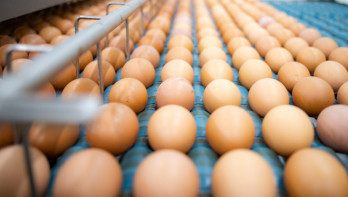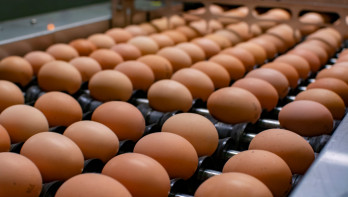Analysis Eggs
Egg prices rise as summer comes to an end
The price of eggs is entering the autumn mode again. This means that the demand is starting to increase, causing prices to rise more sharply. Especially in Germany, the market has been volatile in recent months. Prices in our neighboring country are once again higher than in the Netherlands, and fears of shortages are slowly starting to resurface.
The egg price is starting to rise more significantly. While the prices of 100 brown free-range eggs had been increasing by 5 or 10 cents until two weeks ago, the price has increased by 15 to 20 cents in the last two weeks. This brought the price of category M eggs to €12.
The egg price is truly entering the autumn mode. From autumn onwards, the consumption of both table eggs and industrial demand increases. In the colder months, products and dishes containing eggs are more popular. The demand for confectionery rises, and dishes like quiche are more popular in the autumn and winter period. The colder weather leads to an increase in demand for such products, and the market is preparing for a further increase in demand. In particular, the industry is buying significantly more eggs as a result.
Furthermore, the market is now truly benefiting from the end of the school holidays. In the first weeks after the last summer holiday period, the market was still using up stocks, but now the stocks are starting to decrease. This leads to an increase in demand from packing stations and larger price increases.
Stronger German egg market
Higher prices in Germany are also driving momentum in the Dutch egg market. Prices in our neighboring country are rising even faster. The German price is now even higher than the Dutch price. In week 38, the Weser-Ems quotation for brown free-range eggs was €12.00 per 100 pieces. The following week, eggs were traded for €12.40.
As the market gradually moves towards the holiday season, demand is increasing significantly. Analysts indicate that much more is being ordered than some companies in the sector anticipated. Reserves are depleted, making packing stations reliant on the spot market again. Once the eggs arrive, they are almost immediately resold.
The market's expectation is that shortages will occur this winter, as they did in the past two years. XL-class eggs are almost no longer available. There is still sufficient supply for all other categories. However, it is far from certain that this situation will persist. In particular, the capacity of machines to determine the gender for OKT eggs (Ohne Kükentöten) could once again become a bottleneck. In our neighboring country, the killing of day-old male chicks is prohibited, but nearly two years after the ban was implemented, the capacity to determine the gender of eggs is still insufficient to meet the market's entire demand.


